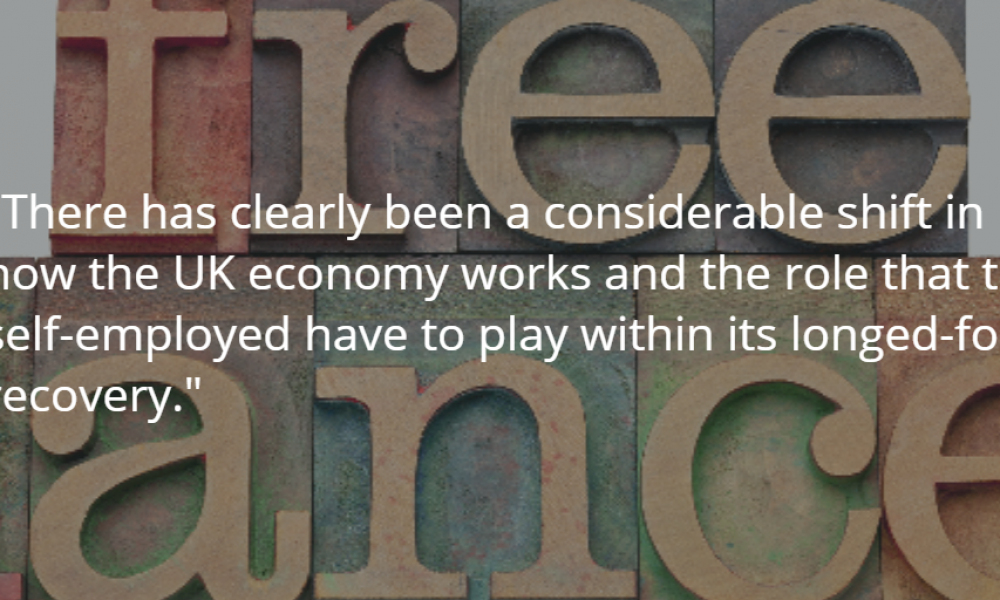Is there a gender divide in contracting?
The number of independent professionals – be they contractors or freelancers – is certainly on the rise in recent years,…
There has been a healthy increase in total employment figures over the last 5 years, giving us all hope in…

There has been a healthy increase in total employment figures over the last 5 years, giving us all hope in the long, hard slog toward the UK’s emergence from the recession. What is particularly interesting to note is that much of this healthy rise in employment has been attributed to a boom in self employment, freelancing and contracting.
In August 2014 The Office of National Statistics published a report that found that total unemployment in the UK peaked at 8.4% in 2011, but has since fallen to 6.4% by 2014. The figures find that this drop in unemployment has been driven by as many as 4.6 million people deciding to make the move into self employment.
This figure presents a total of 15% of the workforce now identifying as freelance, compared with 13% in 2008 and 8.7% as far back as 1975. However, what is important in this case is establishing what these figures actually tell us about the state of freelancing in the UK in the 21st Century.
At first glance, the ONS report paints a rather bleak picture as to why such a sharp increase in self employment has occurred in recent years. There is an initial suggestion that the growth in freelancing could be because there were no other options for people looking for work, thanks to the economic downturn.
A Guardian article, published when the ONS first revealed its figures, quotes Trade Union Centre (TUC) general director Frances O’Grady as saying that the rising self employment is a worrying sign that there are fewer and fewer opportunities for people in the employed workforce. This leads to either more people falling into self employment or, on the other side of the coin, those that are already self-employed being unable to move out of that situation.
Of particular concern to the TUC appears to be the apparent doubling of the over 65s in freelance and self employed positions. In the past 5 years this number has risen to a total of around 500,000. This could point to either an increase in the over-60s wishing to remain in work for longer or a bleaker outlook: do these figures suggest that fewer people in their 60s are now able to retire.
A sharper fall in earnings for independent professionals also caused concern, as the worry for O’Grady and the TUC remains that the self employed community in the UK are some of the worst affected by the recession’s pay squeeze.
Freelancing: an aspirational move?
The overall view given by the ONS figures isn’t necessarily as grim as it may first appear. Freelancing is not the last option choice that it’s sometimes made out to be. Instead, what the rise in freelance individuals could signify is that those who aspire to be their own boss are actually making the leap and starting their own business.
A piece written by the BBC quotes a government spokeswoman who, in relation to the ONS figures, maintains that the growth in freelancers helps the government to provide support for budding freelancers.
A survey of 1,000 freelancers conducted this month by the Association of Independent Professionals and the Self Employed (IPSE) found that there has been a pleasing rise in confidence among the British freelance community.
The study found that freelancers continue to outperform the earnings of typical employees, with earning potential of up to 20% more in one quarter than typical employees make in a year. Other key findings included that typical day rates were found to have experienced a rise of 1% in the last quarter, with an impressive 87% of those surveyed to have been under contract at the time of the survey.
Suneeta Johal, Head of Research, Education and Training at IPSE, speaking on the survey’s findings said: ?The survey shows a welcome return of business confidence both in freelancers’ businesses and in the economy.
Whatever your opinion of the rise in freelancing, it is clear that the independent professional community now represents an even more powerful and important element of the UK’s workforce. There has clearly been a considerable shift in how the UK economy works and the role that the self employed have to play within its longed-for recovery.
With the impending general election, there is no doubt that the self employed will play a bigger role than ever in the winning party’s approach to economic stabilisation.
How did you come to freelancing?
Was it as a result of the economic downturn or was it an active decision on your part to embrace the flexible and dynamic lifestyle that contracting can bring?